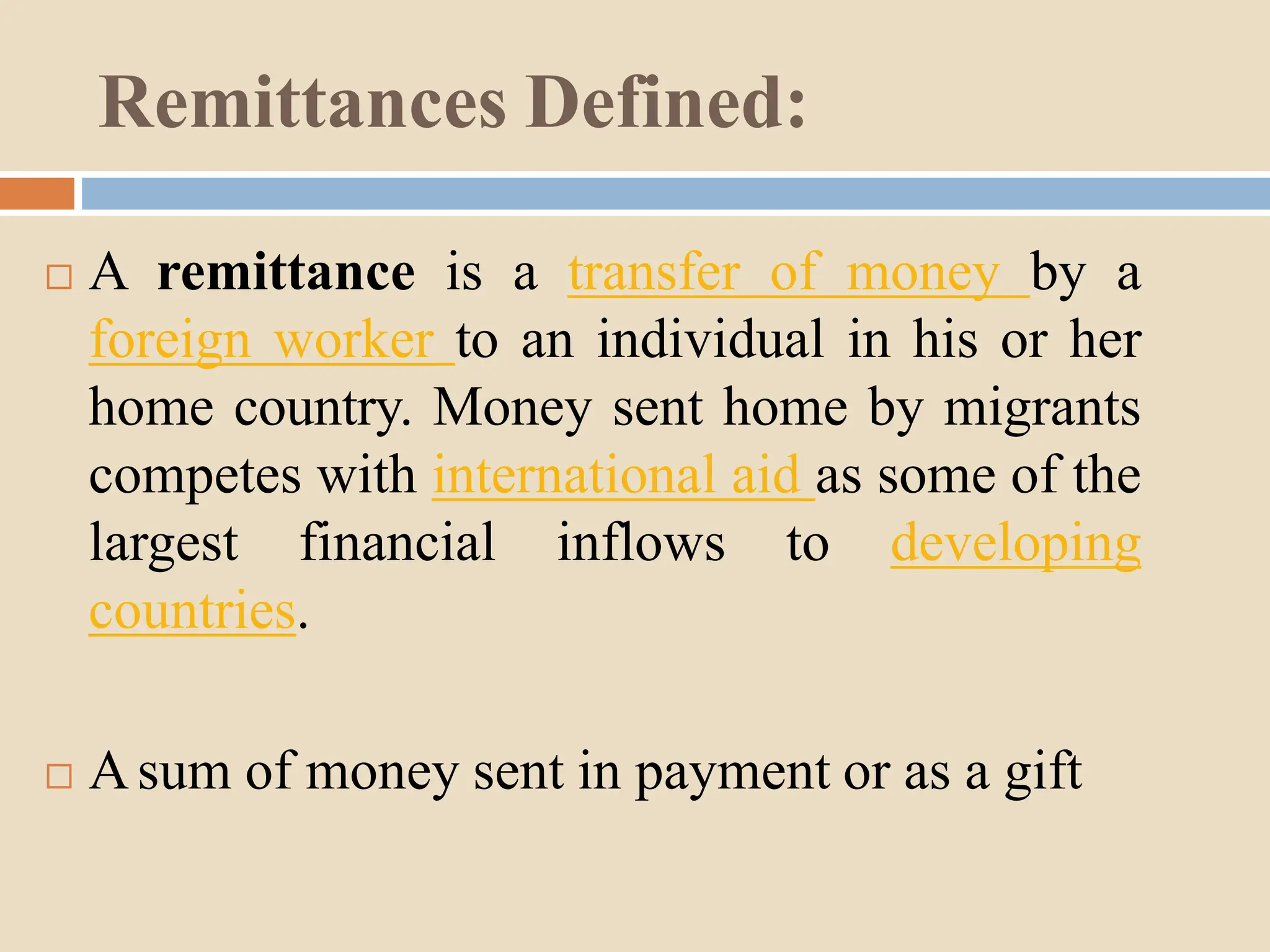Beyond Support: Why Africans Abroad Are Being Urged to Invest, Not Just Remit

In every African household with a relative abroad, there’s a familiar sound: the soft ping of an alert showing that some dollars or pounds have landed. It is a comfort signal, a survival signal and a love language across continents. But that same signal is now at the centre of one of the most important economic conversations happening across Africa: remittances are no longer enough.
With Nigeria receiving an estimated $20.9 billion in diaspora remittances, global institutions and policy bodies are now calling for a shift from routine support to structured investment as a development tool. The International Organization for Migration recently urged Nigeria to convert this inflow into sustainable national growth, rather than just consumption-driven inflows.
This bring us into the emotional, economic, and structural layers of this shift where we ask a critical question: Are Africans in the diaspora ready to evolve from senders to stakeholders?

The Ritual of Sending Money Home
Every diaspora story has its own rhythm. And there lies a simple promise at its heart: “Don’t worry, I’ve got you.” That reassurance is the root of the remittance culture.
It has built homes, paid bills, covered school fees and hospital admissions. It has kept families afloat through recessions, insecurity, inflation and currency crashes.
In many households, diaspora money is the backbone. But in 2025, this backbone is under pressure.
African countries, especially Nigeria, Kenya, and Ghana, now rely on remittances as a major foreign exchange lifeline. Kenya recently recorded a 15 billion shilling rise in remittances over nine months, signalling how indispensable diaspora funds have become to local economies.
Yet dependency has also created a trap. Remittances are used primarily for consumption. They fix immediate needs, not long-term ones. And families constantly expect more.
The Shift: From Lifeline to Investment Engine
Why are organisations now pushing for diaspora investment instead of diaspora support?
Because the numbers speak loudly and painfully. Remittances help households, but they rarely build industries.
They rarely compound and scale. They don’t multiply into job opportunities, new sectors, or national buffers. But investment does.
Diaspora Connect
Stay Connected to Home
From Lagos to London, Accra to Atlanta - We Cover It All.
First point to know is remittances go to consumption while investments go to development. As much as buying food and paying rent keeps families alive, making investments like building farms, apartments, or SMEs keeps communities alive.
Investment also reduces the burden on diaspora workers. The average African abroad shoulders the weight of multiple dependents back home. Instead of sending perpetual monthly support, a well-built investment can generate income for everyone.
The remittances are vulnerable to global policy shocks. Just this year, Ghanaian immigrants in the U.S. were hit with a new 1% tax on remittances. If more countries implement such levies, the cost of supporting families will keep rising.
Lastly, investments also protect diaspora earners. For many Africans abroad, their only major economic footprint is in the country they migrated to. Investment back home diversifies their financial identity and creates a bridge for future return or retirement.
This is not about abandoning family responsibility. It is about redesigning it.

The Emotional Clash: Obligation vs. Opportunity
Of course, this conversation is not just economic; it has emotional strings.
How do you tell someone who has always sent money home that they must “invest instead”? How do you explain to a struggling family that you want to pay for a poultry business, not next month’s food?
There is guilt, misunderstanding, the fear of offending parents, the pressure of being “the one abroad.” There is also exhaustion.
The truth is that many diaspora Africans are tired not because they do not want to help, but because helping has stopped looking like progress. The money goes home, but the situation does not change. The needs recycle.
Investment offers a way out of that cycle. But emotions must be navigated with honesty. Investment should not replace emergency support.
Families need financial literacy so they understand long-term benefits. Diaspora workers also need clarity on what they can sustainably give.
Lastly, trust-building is essential. Because investment means thinking beyond today’s needs and many families are stuck surviving today.
Where Can Diaspora Investment Actually Work?
Diaspora Connect
Stay Connected to Home
From Lagos to London, Accra to Atlanta - We Cover It All.
It is easy to say “invest.” But the real challenge is how?
Here are some practical sectors and instruments that actually scale, especially for diaspora Africans:
1. Real Estate
Diaspora investors have long floated real estate as the golden prize. It remains reliable but only when transparency is guaranteed. Verified developers, cooperatives, and diaspora-targeted mortgage schemes are growing across major African cities.
2. Agriculture and Agri-processing
Demand for food will never shrink. Diaspora-backed poultry farms, cassava mills, packaging plants, or distribution networks can become family-owned enterprises employing dozens.
3. Tech Startups and Innovation Hubs
A new class of African founders abroad is launching fintechs, healthtechs, and platform businesses targeted at African markets. Diaspora seed investment is becoming a major driver.
4. SME Equity Partnerships
Instead of endlessly sending money to relatives’ small stores, invest in it directly. You can buy equity, formalise operations, implement basic accounting and create revenue-sharing structures. This builds dignity, responsibility, and growth.
5. Diaspora Bonds and Government-backed Instruments
Several African countries have explored or launched diaspora bonds. They offer safer, regulated structures for large-scale national investment especially in infrastructure.
The point is simple: investment is not only for wealthy diaspora workers. It is also for structured diaspora workers.
The Biggest Barrier: Trust
Diaspora Connect
Stay Connected to Home
From Lagos to London, Accra to Atlanta - We Cover It All.
Let’s be honest, the greatest reason diaspora Africans hesitate to invest is not lack of capital, it is fear.
Fear that family will mismanage funds. Fear that contractors will scam them. Fear that government policy will shift overnight. Fear that a project will collapse while they are 6,000 miles away.
And these fears are valid but there are solutions emerging. We see the rise of diaspora-focused investment cooperatives, transparent developer platforms, regulated crowd-investment vehicles, escrow-based land purchases, audited family business structures and fintech-backed traceable remittance tools
As trust mechanisms rise, more diaspora Africans are now willing to see home as a place to expand into not a place to escape from.
Home Cannot Grow Without Stakeholders
Africa cannot fully industrialise remittance culture. Remittances are generous but they are also temporary.They are an act of love but not a development strategy.
Investment, on the other hand, builds permanence. It strengthens economies, creates jobs, expands industries, and reduces over-reliance on abroad incomes. It gives diaspora Africans something many secretly long for which is a concrete connection to home that survives them.
The shift from supporter to stakeholder is not easy. But it is necessary. Because at the end of the day, the real dream for every African abroad is simple:
Not just to send money home but to build something that reminds home of them.
Recommended Articles
There are no posts under this category.You may also like...
When Sacred Calendars Align: What a Rare Religious Overlap Can Teach Us

As Lent, Ramadan, and the Lunar calendar converge in February 2026, this short piece explores religious tolerance, commu...
Arsenal Under Fire: Arteta Defiantly Rejects 'Bottlers' Label Amid Title Race Nerves!

Mikel Arteta vehemently denies accusations of Arsenal being "bottlers" following a stumble against Wolves, which handed ...
Sensational Transfer Buzz: Casemiro Linked with Messi or Ronaldo Reunion Post-Man Utd Exit!

The latest transfer window sees major shifts as Manchester United's Casemiro draws interest from Inter Miami and Al Nass...
WBD Deal Heats Up: Netflix Co-CEO Fights for Takeover Amid DOJ Approval Claims!

Netflix co-CEO Ted Sarandos is vigorously advocating for the company's $83 billion acquisition of Warner Bros. Discovery...
KPop Demon Hunters' Stars and Songwriters Celebrate Lunar New Year Success!

Brooks Brothers and Gold House celebrated Lunar New Year with a celebrity-filled dinner in Beverly Hills, featuring rema...
Life-Saving Breakthrough: New US-Backed HIV Injection to Reach Thousands in Zimbabwe

The United States is backing a new twice-yearly HIV prevention injection, lenacapavir (LEN), for 271,000 people in Zimba...
OpenAI's Moral Crossroads: Nearly Tipped Off Police About School Shooter Threat Months Ago
ChatGPT-maker OpenAI disclosed it had identified Jesse Van Rootselaar's account for violent activities last year, prior ...
MTN Nigeria's Market Soars: Stock Hits Record High Post $6.2B Deal

MTN Nigeria's shares surged to a record high following MTN Group's $6.2 billion acquisition of IHS Towers. This strategi...
